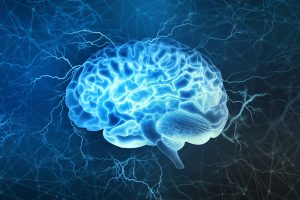If you think that every twinge is something sinister, it could be that you habitually check out your symptoms using a free online symptom checker.
We have all turned into citizen diagnosticians thanks to “Doctor Google”. But citizen beware, online symptom checking could cause you to feel much worse.
Research conducted by Edith Cowan University and published in the Medical Journal of Australia recently evaluated 36 online symptom checkers with a range of clinical vignettes (cases). The study found that the correct diagnosis was listed first only one third of the time and appeared within the top three results only 52% of the time. Triage advice was appropriate less than half of the time.
It is well known that the quality of information on the internet varies wildly. Online symptom checkers are no different. They ask users to list their symptoms before offering possible diagnoses. Triage advice is about whether – or how quickly – the user should see a doctor or go to the emergency department.
If an online symptom checker provides a serious but incorrect diagnosis it may send you rushing to the doctor, increasing the drain on already over-burdened family doctors. But the worst outcome of online symptom checkers, the authors say, is to not be able to identify a disease correctly than to get an inaccurate diagnosis.
Emergency or benign ache?
Most of the time online symptom checkers and triage advice recommend more urgent care than is required. This is because their diagnostic accuracy is limited by their programming and how information is presented. Thanks to their complex algorithms, the more symptoms entered the less useful ‘diagnosis’.
If you search for ‘headache’, for example, the chances are you’ll find some form of tumour in the list or the online symptom checker may suggest that your perpetual fatigue could be a sign of cancer.
Cyberchondria?
If you are prone to cyberchondria – the official name for anxiety-driven habitual online symptom checking. Resisting temptation to look up your symptoms could protect you from unreliable results, but self-diagnosing your symptoms could mean overlooking a potentially dangerous disease.
The authors concluded that free online symptom checkers may provide unsuitable advice and not facilitate the right health care at the right time.
For more information, see the original article in the Medical Journal of Australia:
Source: Michella G Hill, Moira Sim and Brennen Mills. The quality of diagnosis and triage advice provided by free online symptom checkers and apps in Australia. Med J Aust 2020; 212:11 (514-519). doi: 10.5694/mja2.50600
What are your experiences with free online symptom checkers?
Please comment below.





